For an EM medical director, every day is a balancing act marked both by challenge and opportunity.
In addition to managing efficient, profitable, and patient-centric operations, a strong director will lead the staff to achieve its goals in a way that is personally satisfying to the participants and, at the same time, instill a sense of accomplishment among the group as a whole.
The ideal medical director not only understands the business side of hospital and ED operations, but also knows how to build a culture of patient-service orientation and foster collaboration between clinical and non-clinical staff through shared objectives.
Whether your aim is to evaluate your current medical director’s performance or find a new patient-focused director to lead your ED, consider the following capabilities as must-haves.
You want a medical director who:
- Encourages efficient and expeditious ED operation by providing input on budgets, equipment, staffing, and annual goals and objectives;
- Assists in the development and implementation of policies and procedures regarding ED care, patient follow-up, patient referrals, patient transfers, disaster, and other areas as directed by administration;
- Participates in physician recruitment, including face-to-face and phone interviews;
- Orients new physicians and monitors their ongoing compliance with policies and procedures;
- Aids in the coordination of ED staff scheduling;
- Reviews, investigates, and manages all complaints concerning ED staff arising from patients, staff members, or administration;
- Preserves a quality, consistent, courteous, and prompt level of patient care;
- Makes patient satisfaction a top priority in all areas of ED care;
- Continuously audits clinician quality and conducts quarterly performance reviews;
- Develops and coordinates education programs for clinical and non-clinical staff that support departmental goals;
- Creates opportunities for ED staff to meet and socialize informally, to cultivate camaraderie and team spirit;
- Maintains a positive problem-solving attitude in all dealings with staff and patients;
- Oversees compliance with the ED’s risk management program;
- Implements ED quality assurance and quality improvement programs;
- Provides competent and reasonable clinical leadership to clinical staff;
- Includes non-clinical staff members in meetings that affect their roles and responsibilities;
- Regularly attends medical staff meetings, including the department’s committee, medical staff, and others to which the director is appointed;
- Routinely assesses medical staff perceptions and needs relative to the department to ensure a harmonious and collegial relationship;
- Interacts closely with administration to establish mutual goals and objectives and participates in the ongoing assessment of their achievement;
- Works cooperatively with department heads to ensure availability and efficient use of services.
Because your medical director bears the greatest responsibility for the emergency department’s ongoing success, it is vital that you recruit and appoint positions of leadership only to providers who demonstrate all of the capabilities included on this list. Not only will your hospital and staff benefit but, more importantly, so will the patients whose care is under your charge.
If you are a medical director seeking a place to grow professionally and personally, look no further than Schumacher Clinical Partners.
We supply our medical directors with the support they need to meet their professional goals while delivering the best in quality patient care. From scheduling technology and processes that help streamline daily operations to direct communication pathways for program assistance, we back our physician leaders with a responsive support system focused on providing a standard of excellence in patient-centered care.






